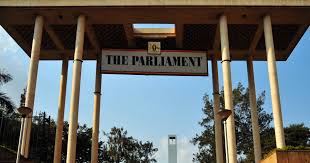Uganda Parliament Pass Computer Misuse Bill Imposing Tougher Penalties

The Computer Misuse Bill 2022 (Amendment) has been passed by the Ugandan parliament. It was privately and independently by the minister for Kampala Central, Muhammad Nsereko, this time this bill imposes firm penalties for cyber-related crimes.
The bill will omit clauses that seek to ban convicts from running for election within 10 years or holding a public office. Asides from the mentioned, the remainder of the clauses were passed without contention.
In the same vein, the chairperson of the ICT committee, Hon. Moses Magogo proposed a new clause in the bill, which characterised social media and developed penalties for computer users who use fake accounts to commit cyber crimes.
The proposed clause states, “A person who uses social media to publish, distribute or share information, prohibited under the laws of Uganda or using a disguised or false identity, commits an offence”.
Likewise, anyone who is responsible for the social media account of a company or an organization where the said offence takes place, the person will be held responsible for the organization’s offence as provided by the bill.
The proposed clause also provides varyng definition os social media as, “a set of technologies, sites, and practices which are used to share opinions, experiences and perspectives, and includes YouTube, WhatsApp, Facebook, Instagram, Twitter, WeChat, TikTok, Sina Weibo, QQ, Telegram, Snapchat, Kuaishou, Qzone, Reddit, Quora, Skype, Microsoft Team and Linkedin”.
Anyone who commits a violation of the clause in question shall in return pay a fine of Sixteen Million Ugandan Shillings, or Five years in jail or suffer both imprisonment or fine.
Persons with verified accounts or whose communication details (email or phone number) is used to create a social media account, will be liable for offences created using the account except proven otherwise.
Justifying the proposal of the clause, MP Magogo said it is designed to “provide for the regulation of social media”.
part of the bill reads, “For the purposes of this section, “unsolicited information” means information transmitted to a person using the internet without the person’s consent, but does not include an unsolicited commercial communication.”
In opposition to the clause, MP Namugga explained that the bill was not constitutional and appealed that the house should not pass it.
According to her, “The entire bill should not be left to stand as part of our laws as all the clauses are already catered for in existing legislation and in some instances offends the Constitution of the Republic of Uganda; the fundamental rights to access information electronically and to express oneself over computer networks are utterly risked by this bill.”
Namugga further said, “if passed into law, it will stifle the acquisition of information; the penalties proposed in the bill are overly harsh and disproportionate when compared to similar offences in other legislations; this bill if passed, will be a bad law and liable to constitutional petitions upon assent.”
